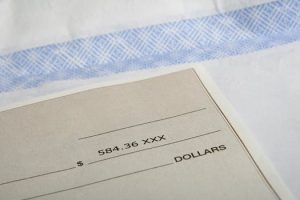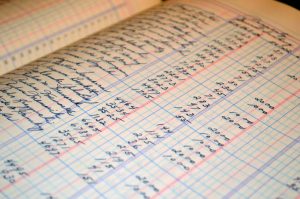 Is it ever smart financially to pay off the bank loan on one of your investment properties or rentals, quickly? Should you do a fifteen-year loan, or a 30-year amortized loan? What should your goals be? To own your properties outright, or with a loan? Furthermore, should you pay straight cash for long-term holds? These are very important questions that many investors have the wrong answers to. Sometimes it makes sense to pay off bank loans, but other times it is better to have a loan against real property. You won’t want to miss this article if you own real estate properties.
Is it ever smart financially to pay off the bank loan on one of your investment properties or rentals, quickly? Should you do a fifteen-year loan, or a 30-year amortized loan? What should your goals be? To own your properties outright, or with a loan? Furthermore, should you pay straight cash for long-term holds? These are very important questions that many investors have the wrong answers to. Sometimes it makes sense to pay off bank loans, but other times it is better to have a loan against real property. You won’t want to miss this article if you own real estate properties.
The Concept of Arbitrage
Arbitrage. What is it? People find the word itself a little scary, but it’s not. When you think about it, you’re doing arbitrage every single day. Let’s take an example. If you pay an interior designer 15 dollars an hour, it would make sense to hire someone else to do tif you are making 30 to 50 an hour. Why? Because it simply makes more sense to pay someone else to babysit, so that you can do your job. They know what they are doing better than you. This is what arbitrage is. Financial arbitrage is the idea that when you invest, you can earn more interest on your money than the interest rate for borrowing that money. Here’s a fantastic example of Arbitrage from the movie, “Arbitrage”
Bank Loan Advantages
By utilizing a loan from the bank, you are getting a higher cash return, you’re able to purchase more real estate because you’re putting less money into it, and you’re still using arbitrage. You also have depreciation, which lets you pay lower in income taxes because a property is considered an expense. Of course, it isn’t exactly an expense taken out of your debit account, but regarding taxes, it’s still an expense.
Bank Loan Disadvantages
▪ Personal Guarantee
One issue with using a loan from the bank is that if something goes South, and you don’t pay the loan, you are held liable personally, and still have to pay it.
▪ Mortgage Length
There are several options when it comes to loan terms. The loan term you choose is very important, because if you can get a very good interest rate, it usually makes a good deal an even better deal. Though, there is also the “amortization” length which is usually fifteen to thirty years for a residential property. If a lender requires you to sign a loan term for half a decade, your overall profitability will suffer, because you’re going to have to pay more money over time.
▪ Fixed Rate Length
Know that even though a lender may offer a specific amortized loan term, that doesn’t mean it will stay fixed. Perhaps it will for around five years, but then it will change to whatever the interest rate is at that time. So basically, you plan out about five years ahead of time and discover you can handle the payments for the house. When that changes later on, you’re going to be pretty stuck. This is why fixed rates are such a fantastic option. You know exactly what you’re going to pay each year. Before you get too excited, fixed rate loans come with their own set of cons as well.
▪ Lack of Anonymity
When you get a loan, they are going to want you to be the buyer personally; therefore, all of your information is going to show you as the owner on each document on record. When you receive a bank loan, your information is going to be public. This can be a problem if you don’t want your information out there, for whatever reason.
More About Bank Loans
Equity.
Most banks are only going to require a 20% down payment for most investment loans. My first rule of thumb is to not only put 20% down but you must also buy it 10% below value. This 30% in equity is important because if things go wrong and you need to sell the investment property quickly, you can drop the price low enough to get rid of it quickly, but still pay off your bank loan and even make a small profit.
You Need Reserves.
Always have at least four mortgage payments worth of reserves. This saved up money can be used to pay the mortgage payments if something goes wrong. It gives you the time to fix the problem, whether it’s that a tenant moved out, the property needs major maintenance, or anything else thrown your way. Having equity and reserves gives you the ability to take full advantage of the power of a bank loan. It allows you to use the bank loan to your benefit instead of putting yourself in a potential financial bind by trying to use the power of leverage.
https://www.youtube.com/watch?v=iP9H5fADC0E
Benefits to Owning a Rental Property All Cash
▪ Anonymity When you Buy
When buying a house with all cash, you can purchase it with an LLC (Limited Liability Corporation) trust. In this case, you’re able to anonymously purchase the property. This is a huge incentive for those who do not want the public to know personal information about their assets.
▪ No Interest
If you purchase a property with all cash, you obviously will not have any interest to pay on the property. Interest is not always a bad thing, if you make sure that your capitalization rate is higher than the interest rate. However, if that rate is either equal to (or even just a tiny bit higher) than your interest rate, there’s no point in you paying interest on the house.
Property Ownership Myth When Paying with All Cash
This may surprise people, but just because you pay straight cash on a house doesn’t mean you own it. You’ve still got to pay property taxes. If you don’t, the government is allowed to seize the property. If it’s a Homeowner’s Association (HOA), you have to pay your monthly dues, or they too, could seize the property. You have to have insurance on your house. Know that either way, even if you pay cash, you still don’t fully ever own the house.
Loan VS Pay Off/Cash
If you are able to get a property that has a fixed interest rate, the loan is almost always a good idea. But, if your capitalization rate is exorbitantly high, it makes sense to pay off the loan. Why? Because there’s nowhere else you could put your money in order to get that high of an ROI (Return on Investment).
If you can’t get a fixed rate loan and you plan to own the property for a very long time, it’s wiser to pay all-cash so that you don’t have to worry about increasing capitalization rates, or the instability of them. If you want to remain anonymous with your assets, you should pay cash up front.
Many people disagree on whether early mortgage payoff is a good idea or not. This topic is highly debatable since so many factors must be taken into consideration. Who doesn’t dream about paying off their mortgage and freeing up all that monthly cash?
https://www.youtube.com/watch?v=zP0rP3X-nMg
Advantages of paying off mortgage early
1. Better cash flow
Paying off your investment property mortgage early will save you lots of money. Once you pay off your mortgage you will have extra space in your monthly budget. If you are an owner-occupant, you will keep a big piece of your paycheck. And if you are a real estate investor, you will increase your rental income. Either way it’s a win-win scenario. More cash flow for you!
2. No more interest payments
The longer you carry a mortgage, the higher your total interest amount will be. The higher the interest rate on mortgage, the better it is to pay it off early. Better a dollar in your pocket than the bank’s.
3. Allows you to purchase more rental property
Paying your investment property mortgage early will allow you to purchase more property. You will free-up your money and can save up for a bigger down-payment, which means you can pay off that mortgage early, buy another property, and continue this cycle.
4. Reduces your debt-to-income ratio
Debt-to-income ratio is one way lenders and mortgage lenders see an individual’s ability to manage monthly payments and pay debts. When you pay off your investment property mortgage early, this reduces your debt-to-income ratio and gives you more opportunities to purchase investment properties.
Disadvantages of paying off mortgage early
1. Lose out on mortgage interest deduction
When you don’t pay off your mortgage you lose out on mortgage interest deduction, which means more of your rental income is taxable at your regular tax rate. You lose this tax benefit that many investors rely on.
2. Your time until retirement
If you pay off your investment property mortgage early, you take away your means to invest for retirement or long-term goals. Your timeline until retirement may be a factor to consider before paying off your mortgage early. Having multiple investments can secure your retirement.
3. You cannot borrow it back
A lot of the times, paying off the mortgage means it’s difficult or expensive to borrow it again. There are people who call back their lenders a year later saying that they need cash and find themselves no longer qualified to borrow.
4. You won’t be able to invest elsewhere
Paying off your mortgage won’t allow you to invest in other properties. For many people, it would make more sense for them to invest the funds elsewhere so they can establish financial savings in other portfolios.
What should YOU do?
When you begin to consider paying off your investment property mortgage sooner rather than later, you must first examine you financial situation and both short-and-long term goals. What is your current rate and term as your loan? Do you carry several other debts like car payment or other loans that you wish were off your plate? What is a more valuable goal to you – paying down high-interest rate debts like credit cards or paying toward owning your home free and clear? So many questions come to mind and so many factors must be kept in mind to decide on whether or not paying off mortgage early is good or not.
Private mortgage insurance
If you decide not to pay off your mortgage loan quickly, be quick to get rid of your PMI (private mortgage insurance). This is charged by lenders when you take out a conventional home loan with less than a 20% down payment. But you can request a cancellation after you pay down your mortgage balance to 80% of the original value of the property. This will definitely make paying off your investment property mortgage easier. The idea of paying of your mortgage early or not is a personal choice that depends on each individual’s financial situation. For every situation, there are pros and cons and the best way to decide is by taking the long-term consequences and goals into consideration.
Should you invest with your spare cash or pay off your mortgage early? As with most financial planning decisions, the answer is not black and white. One of the most common questions facing families is whether to accelerate mortgage payments or to borrow as much as possible, make minimum debt payments and save for retirement.
Can you afford to pay off your mortgage early, in the case of an emergency?
It can be real easy to raid your emergency fund or divert savings to pay off your mortgage early. If an unexpected event happens such as losing your job or getting hospitalized, you might have to pull from your emergency fund to pay your bills. Investments however can be sold off instantly (non-retirement investments) which gives you immediate access to cash when you need it.
If the majority of your money is in the equity in your house, you potentially could end up having to take out a loan against your home to pay the bills. Therefore, it’s imperative to have an emergency fund before you start making any extra mortgage payments or investments.
Leave a Reply